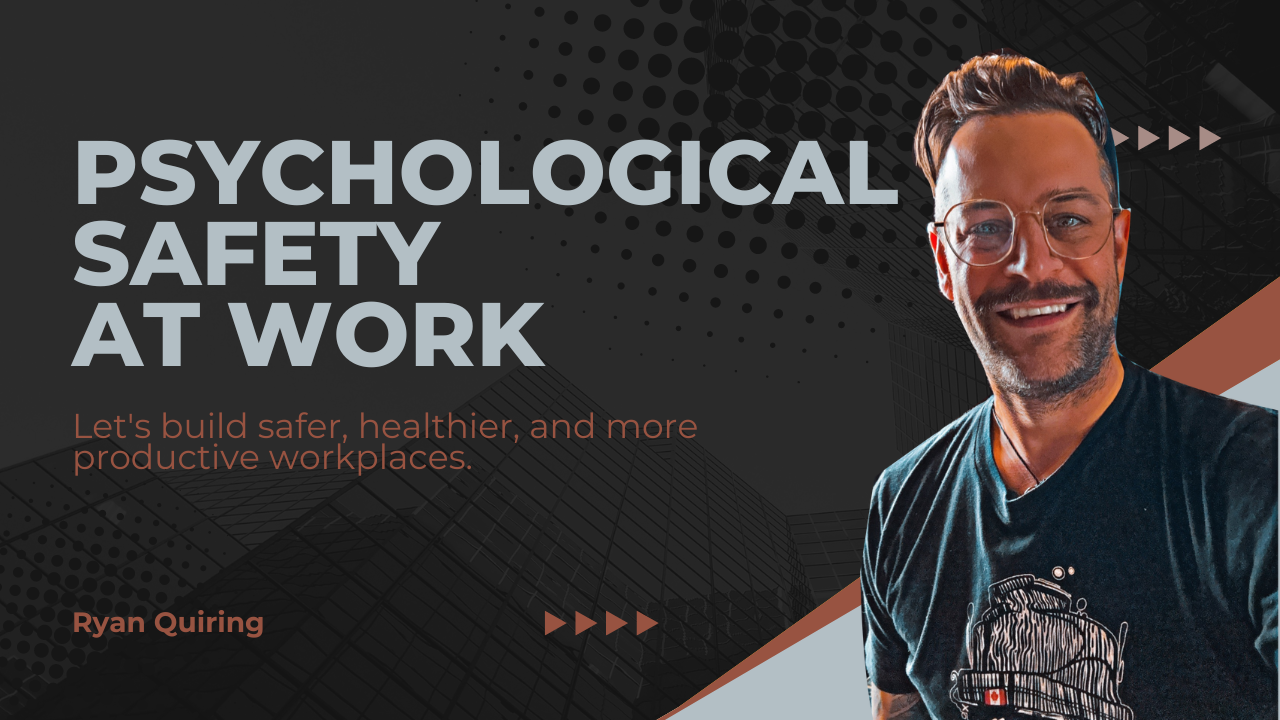I want to discuss a crucial psychological safety element in the workplace: Trust. As someone who’s seen both the power of trust and the devastating effects of its absence, I can tell you that trust isn’t just nice to have—it’s the bedrock of a thriving, psychologically safe work environment.
Let’s start by acknowledging a hard truth: trust is fragile. It takes time to build, moments to break, and significant effort to rebuild. It’s similar to reputation, where it’s built in droplets and lost in buckets. But here’s the thing—the payoff is immense. When trust is present, it acts as a lubricant for all workplace interactions. It speeds up decision-making, enhances collaboration, and creates an environment where innovation can flourish.
So, how do we build this foundation of trust? Start by demonstrating reliability, competence, and genuine care for others through consistent, everyday actions, showing integrity. This means aligning your words with your actions and following through on commitments, no matter how small. When you say you’ll do something, do it. If circumstances change and you can’t follow through, communicate openly. People respect honesty far more than they resent occasional letdowns.
Transparency is another key builder of trust. Share information freely unless there’s a compelling reason not to. When decisions are made, explain the reasoning behind them. Even if people disagree with the decision, they’re more likely to respect it if they understand the thought process.
Active listening is a powerful trust-builder that’s often overlooked. Listening to truly understand. Ask questions. Reflect on what you’ve heard. Show that you value others’ perspectives, even when they differ from your own.
We discussed vulnerability, which plays a crucial role in building trust. By admitting mistakes, acknowledging uncertainties, and asking for help, you create an environment where others feel safe to do the same.
Consistency is key in trust-building. Be reliable in your behavior. Unpredictable moods or reactions create anxiety and erode trust. This doesn’t mean suppressing emotions—it means managing them responsibly and communicating clearly.
Respect for boundaries is another important aspect. This includes respecting people’s time, personal space, and work-life balance. It also means maintaining confidentiality when information is shared in confidence.
Fairness is crucial. Treat people equitably. If there are differences in how people are treated, be transparent about the reasons. Favouritism is a quick way to erode trust across a team.
Recognition and appreciation go a long way in building trust. Acknowledge people’s efforts and contributions. Be specific in your praise. This shows that you’re paying attention and that you value their work.
Now, let’s talk about rebuilding trust when it’s been broken. Because let’s face it – we’re human. Mistakes happen. The key is how we handle them. If you’ve broken trust, acknowledge it quickly. Take full responsibility without making excuses. Apologize sincerely, and most importantly, calibrate your behaviour in the future.
Remember, building trust is not a one-time event—it’s an ongoing process. It requires consistent effort and attention, but the rewards are immeasurable. In a high-trust environment, people feel safe taking risks, innovating, and challenging the status quo. They’re more engaged, productive, and satisfied with their work.
As leaders, colleagues, and team members, we all have the power to contribute to building trust. It starts with small, everyday actions:
- Being punctual for meetings.
- Following through on promises.
- Giving credit where it’s due.
- Admitting when we’re wrong.
These might seem like small things, but they create a culture of trust.
I challenge you to reflect on your behaviours. How are you contributing to building trust in your workplace? Are there areas where you could improve? Remember, trust is about being consistently authentic, reliable, and caring.
Building trust can be challenging. It requires vulnerability, consistency, and sometimes courage. But it’s the foundation upon which psychologically safe workplaces are built. In these environments, not only do we perform better, but we thrive as human beings.
So, let’s commit to being trust-builders. When we create trusting environments, we’re creating spaces where people can bring their full, authentic selves to work. And that’s when true magic happens.
